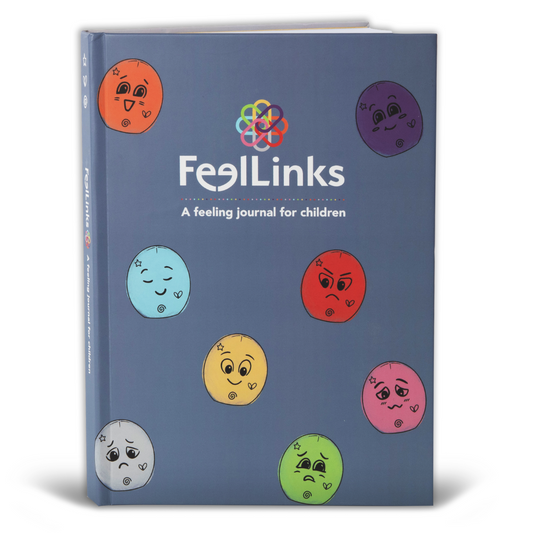A Critical Advisory For A Healthier Society
Share
Are you a parent or caretaker raising children or know someone who is? This article is critical for all of us to read, digest, and take action for a healthier society.
**You might also read the latest opinion essay in the New York Times written by Dr. Vivek Murthy, U.S. Surgeon General: Parents Are At Their Wits' End. We Can Do Better.
The U.S. Surgeon General, Dr. Vivek Murthy, has released the latest advisory highlighting the stressors that impact the mental health and well-being of parents and caregivers, the critical link between parental mental health and children's long-term well-being, and the urgent need to better support parents, caregivers, and families.
Parents Under Pressure: The U.S. Surgeon General Advisory on the Mental Health and Well-Being of Parents
We know that parents and caretakers well-being significantly influences the well-being of their children; affecting their emotional and psychological development, overall health, academics, and future.
It's critical that we prioritize the well-being of parents and create a society where everyone can thrive - we must value and prioritize parents well-being.
- As a parent/caretaker, what would you say your stress level is on a daily basis, low 1-10 extreme?
- What are the most prominent emotions you feel in your parenting role?
- Are you giving yourself the care that you need to be the best parent/caretaker role model?
Family Dynamics
When a parent struggles with depression, anxiety, and/or stress, it can create some difficulties in the home environment. The children living under such circumstances may experience increased anxiety, behavioral problems, or difficulties in forming secure attachments. The emotional well-being of parents is critical for maintaining a stable, nurturing environment that supports healthy development in children.
Quality
Parents well-being can profoundly impact the quality of their caretaking skills - engaging in positive parenting practices such as: open and effective communication, consistency in rules and routines, and giving emotional support. If a parent is struggling with their own mental health it may lead to inconsistent parenting practices and being quick to react, which can negatively affect children’s emotional security and behavior.
Break the Stigma
We must normalize and validate the need for parental mental health supports; break the stigma and encourage parents to seek help when they need it. Whether it be through friends and family, support groups, therapy, or medication, we can create the culture where asking for help is okay and in turn foster healthier families and communities. When parents prioritize their own mental health, they are better able to model healthy coping strategies for their children and contribute to a more supportive family environment.
Supports
Support systems for parents is essential! It's critical to have accessible mental health resources, community networks, and other help such as childcare. If we can all encourage more open conversations about mental health within families we can alleviate some of the burdens and foster a culture of understanding, empathy, compassion and support.
Parental Warmth
The emotional support, affection, and responsiveness that parents provide plays a critical role in shaping children’s development and future outcomes. A strong bond and nurturing connection influences many parts of a child's life, including, but not limited to: mental, emotional, and physical health, academic success and relationships.
Confident and Secure
Parental warmth helps create a secure emotional foundation for children. When parents are consistent in offering affection, validation and understanding, children develop a strong sense of safety, trust, self-worth, and emotional resilience. This gives children more confidence in exploring the world and the ability to handle setbacks and challenges with greater ease.
Relationships
Children who feel loved and supported are more likely to have healthy self-esteem and positive relationships with others. Children who experience parental warmth are more likely to develop strong interpersonal skills, empathy, and effective communication abilities.
Academics
Responsive parenting fosters a positive learning environment where children feel encouraged to engage in exploration and problem-solving. This often leads to better academic success and a greater eagerness to learn.
Behavior
Children who receive consistent support in a nurturing and loving way, are more likely to exhibit acceptable behaviors and adapt well to social norms. In contrast, children who experience less warmth, may be more prone to behavioral difficulties and experience greater struggles in social interactions. Parental warmth helps instill values and self-discipline, guiding children to navigate social expectations more effectively.
Resilience and Coping
When a parent is able to provide a nurturing, supportive environment, children become better equip to cope with life's ups and downs, handle stress more effectively, problem solve more easily and exhibit a growth mindset.
Positive Parent-Child Bond
The parent-child bond is strengthened through a nurturing, safe and trusting connection. This enhances daily interactions between parent and child and also encourages children to continue seeking support from their parents as they grow. A strong relationship built on safe connections and understanding lays the foundation for lifelong communication, support, and positive bonds.
----
Parental warmth is a powerful force in shaping children. By providing consistent affection, support, responsiveness and validation, parents set the foundation for their children’s emotional security, cognitive and social development, and overall well-being. Investing in a warm and nurturing parenting approach is a key strategy for promoting positive outcomes and helping children thrive.
In order for caretakers to attend to their children in a warm, nurturing and supportive way, we must go back to the initial questions I posed at the start of this article. Think deeply about your responses and gain a better understanding if how you answered these questions is in line with how you hope to be answering...
- What would you say your stress level is on a daily basis, low 1-10 extreme?
- What are the most prominent emotions you feel in your parenting role?
- Are you giving yourself the care that you need to be the best parent/caretaker role model?
If you hope to be answering these differently, what will you do from the points listed above to support yourself to become more in line with what you hope to be as a parent/caretaker - will you...
- Remember, caring for yourself is a key part of how you care for your family.
- Nurture connections with other parents and caregivers.
- Explore opportunities to secure comprehensive insurance coverage for yourself and your family.
- Empower yourself with information about mental health care.
- Recognize how mental health challenges manifest and seek help when needed.
If you are a friend or family member, here are a couple of things you can do to support a parent in your life:
- Reach out and offer practical support with household or everyday tasks.
- Connect with parents and caregivers in your life on a regular basis.
- Learn about mental health challenges parents and caregivers may face
The mental health of parents is the foundation of family well-being. By recognizing and addressing the mental health needs of parents, we not only improve their quality of life but also positively impact their children’s development. Investing in parental mental health is a critical step toward fostering healthier families and, by extension, creating a healthier society.
(references: Office of U.S. Surgeon General)






